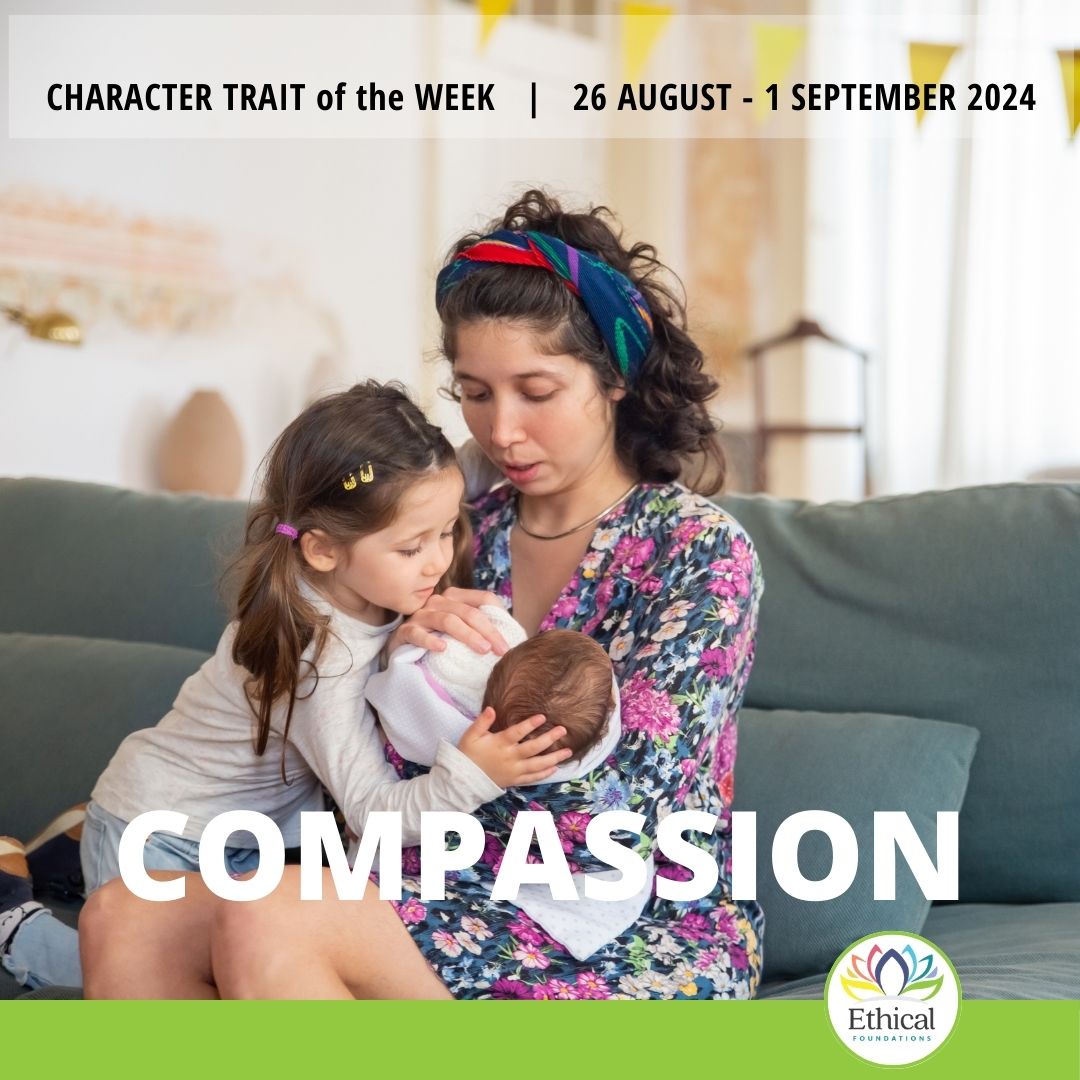26 Aug COMPASSION
Teaching kids compassion
Parents, as the primary influencers in their children’s lives, can teach kids the power of compassion from an early age.
This early learning could be crucial in reducing bullying in schools, empowering parents with a significant responsibility.
Compassion requires consideration, thoughtfulness, understanding, kindness and caring.
Children are not born selfish. They are inherently kind and caring human beings.
Kids demonstrate their affectionate nature by caring for animals and people, a testament to their compassion.
Ideas come into their head about how to help others because they are compassionate creatures that naturally want to help when they see less fortunate than themselves.
Educating children from an early age about the power of compassion serves both the child and the people on the receiving end of their compassion.
3 Ways
Here are three ways a child can practice compassion:
1. Sharing toys with friends – the friend with whom they share their toy feels good, and your child develops empathy and social skills.
2. Making a card or gift for a sick person – can make the receiver feel supported and cared for while your child fosters their creativity and connections.
3. Helping with chores at home – parents feel appreciated and respected, and children learn responsibility and cooperation.
Win/Win
Discovering the positive impact of helping others is essential because your child will realise they can be helpful anytime they decide to.
They will realise that they matter in the lives of others, and this can provide purpose when and if they are feeling lost and alone in later years.
You can’t help others without helping yourself.
Knowing this can be a ‘go-to’ when feeling that you have no purpose or have lost your way.
Purpose
We all need purpose; this is the quickest and easiest way to find purpose.
We all have challenges in our lives and are going through something. Sometimes, you know what others are going through, and other times, you don’t.
You hear about someone going through a rough patch and are surprised because they didn’t show it. For others, their troubles can be apparent.
If being compassionate means keeping your mouth closed, then it’s a great place to start. Not saying anything that would hurt or offend anyone else is a small act of compassion.
However, if anyone says or does anything hurtful to you or yours, remember that happy people don’t hurt others; they are not cruel or unkind.
Being cruel or unkind is a clear sign they’re hurting somehow.
While teaching your child to be kind to others, you must also let them know they must constantly show compassion for themselves.
Therefore, knowing and establishing their boundaries helps them to address challenging situations as they occur.
Every character trait requires balance and moderation.
While compassion holds excellent power, showing compassion to yourself is essential.
Remember, as the parent, you’re their role model.
When was the last time you treated yourself with compassion?


Sorry, the comment form is closed at this time.